Apple releases new iPads, unveiling M4 chip in Pro line-up
The tech giant has released four new iPads equipped with features that ensure the tablets are ready for the AI-era. Here’s what’s new and how much they will cost.
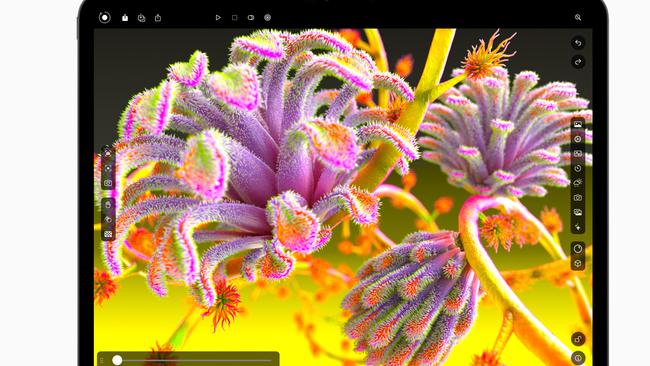
Apple has unveiled four new iPad models, using the tablet computer to unveil its next generation M4 chip to deliver thinner and lighter devices as well as “outrageously powerful” performance, as it jockeys for position in the artificial intelligence race.
The new line up includes two iPad Air and two iPad Pro models, both coming in 11 and 13 inch displays. The Pro versions feature the M4 rather than the M3 processor, which was launched late last year across the new MacBook Pro models. It is the first time Apple has used the iPad to unveil a new chip.
Apple chief executive Tim Cook said: “this is the biggest day for iPad since its introduction” in 2010. The new chip uses half the energy as the M2 processors, allowing it to perform a range of AI-hungry tasks and feature a new OLED screen in the Pro models.
Apple’s senior vice president of hardware engineering John Ternus said the 13 inch iPad Pro was the thinnest product the company has produced – beating the iPod Nano – measuring 5.1mm, a feat he said would not be possible without the M4 processor.
He said a more powerful chip also enabled the iPad Pro to complete a range of AI features on device and in the cloud for use such programs as Microsoft’s Copilot and Adobe Firefly.
“This is the iPad we’ve always dreamed of making,” Mr Ternus said, unveiling the line-up at Apple’s new UK headquarters at the restored Battersea Power Station in London.
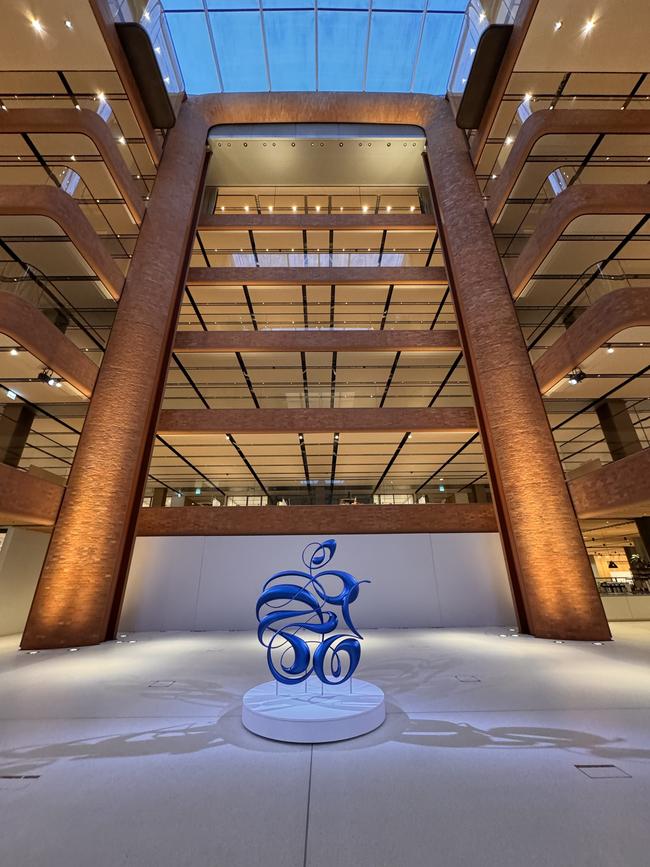
“With iPad Pro with M4, users can perform AI-enabled tasks even faster, like easily isolate a subject from its background in 4K video with just a tap with Scene Removal Mask in Final Cut Pro. With this advanced level of performance, the neural engine in M4 is more powerful than any neural processing unit in any AI PC today.”
It comes as rival Microsoft – which overtook Apple to become the world’s most valuable company earlier this year – is set to unveil many AI-enabled laptop computers, including models powered by Qualcomm’s Snapdragon processor, at its Build conference in Seattle later this month.
Rival Samsung also intensified the battle in fiercely competitive smartphone market in January, going all in AI on the newest edition of its premium device range, the Galaxy S series. Samsung’s latest lineup uses both on-device and cloud-based AI to perform tasks from photo editing to live translation, transcription and summarising context.
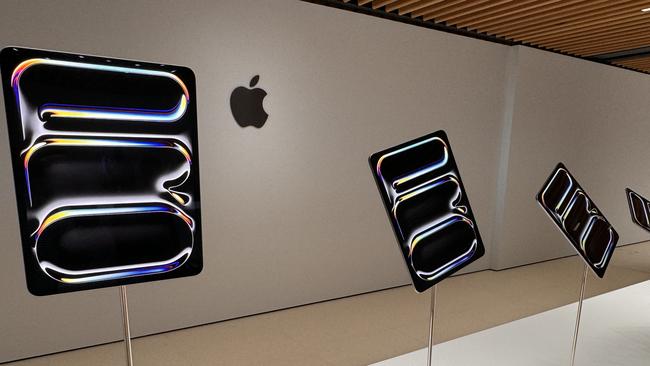
Apple also introduced OLED screens in its iPad Pro models for the first time - a move it claims has created the world’s most advanced display, given its 2000,000:1 contrast ratio and support of Apple Pencil. To achieve the required brightness – up to 1600 nits – it has blended the light of two OLED panels, forming an “Ultra Retina XDR display”.
Accessories received updates too. Apple unveiled a new Pro model Pencil, which is equipped with the company’s ‘Find My’ function, allowing it to be found easily when lost – say from the back of a couch – among other new features, as well as a new Magic Keyboard.
The camera has been shifted from the top of the iPads to the landscape side, allowing it to be used more like a MacBook to cater for the Zoom video call era.

“iPad Pro empowers a broad set of pros and is perfect for anyone who wants the ultimate iPad experience — with its combination of the world’s best displays, extraordinary performance of our latest M-series chips, and advanced accessories — all in a portable design,” Mr Ternus said.
“Today, we’re taking it even further with the new, stunningly thin and light iPad Pro, our biggest update ever to iPad Pro. With the breakthrough Ultra Retina XDR display, the next-level performance of M4, incredible AI capabilities, and support for the all-new Apple Pencil Pro and Magic Keyboard, there’s no device like the new iPad Pro.”
Mr Ternus said the M4 represents “another big step forward for Apple Silicon” – what the company calls its in-house produced chips – with its neural engine capable of 38 trillion operations per second. Apple says this makes the M4 60x faster than its first A11 Bionic chip launched seven years ago.
“The M4 can deliver the same performance as M2 using just half the power,” Mr Ternus said. “That’s a tremendous gain in performance. Now when you compare it with the latest PC chip in a thin and light laptop, M4 can deliver the same performance using just a quarter of the power.”
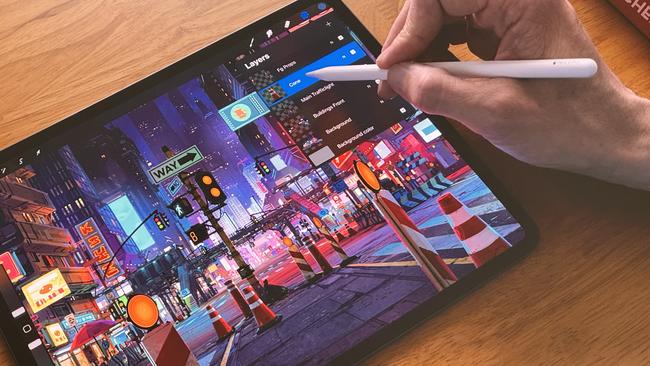
Combined with the new Magic Keyboard – which includes a function row, aluminium palm rest and larger trackpad – Mr Ternus said the iPad Pro could function more like a MacBook.
The Apple Pencil Pro features a sensor in the barrel to enable a “user’s squeeze” to allow palette tool changes, such as line weights and colours, “without interrupting the creative process”.
Meanwhile, a gyroscope allows users to roll Apple Pencil Pro for precise control of the tool they’re using.
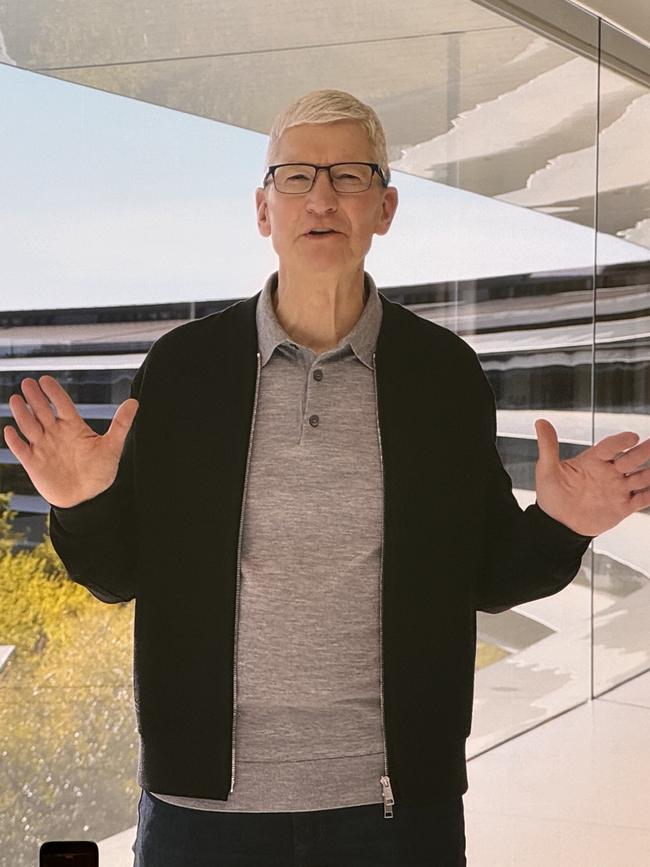
Rotating the barrel changes the orientation of shaped pen and brush tools, which Apple says makes it act like pen and paper. It also features a hover function, in which users can see what a pencil mark looks like before they make it, as well as haptic feedback to provide a more tangible experience.
With the iPad Air, which feature M2 chips, Apple says it has redesigned the 11 inch model, while introducing a new 13 inch version, to reflect that half the iPad Pro users prefer a larger screen. Mr Ternus said the Air was also designed to handle power-hungry AI workloads.
“With M2, the new iPad Air is an amazing device for AI, featuring a more efficient 16-core Neural Engine that is 40 per cent faster than M1,” he said.
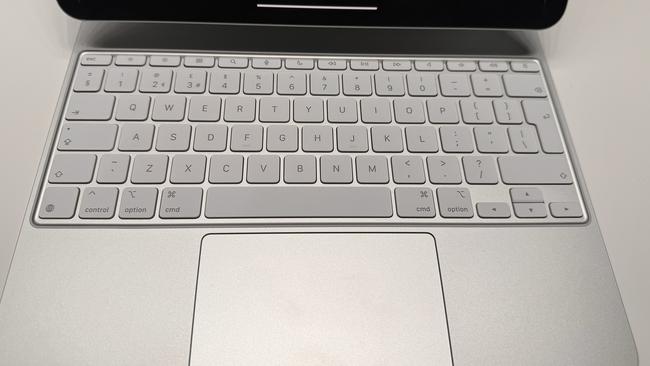
The 11-inch iPad Pro starts at $1,699 for the Wi-Fi model, and $2,049 for the Wi-Fi + Cellular model. The 13-inch iPad Pro starts at $2,199 for the Wi-Fi model, and $2,549 for the Wi-Fi + Cellular model.
Meanwhile, the 11-inch iPad Air starts at $999 for the Wi-Fi model, and $1,249 or the Wi-Fi + Cellular model. The 13-inch iPad Air starts at $1,299 inc for the Wi-Fi model, and$1,549 for the Wi-Fi + Cellular model.
The author travelled to London as a guest of Apple




To join the conversation, please log in. Don't have an account? Register
Join the conversation, you are commenting as Logout